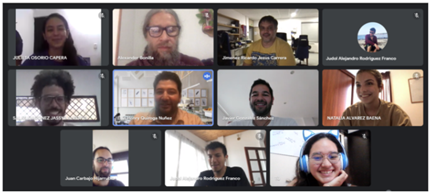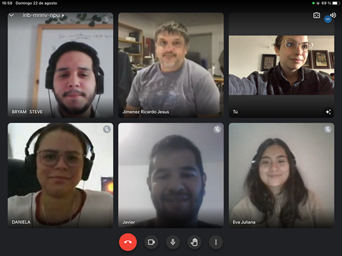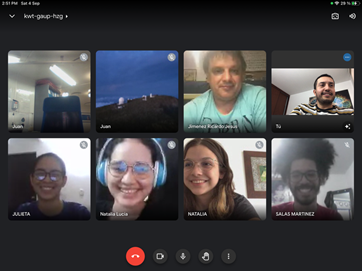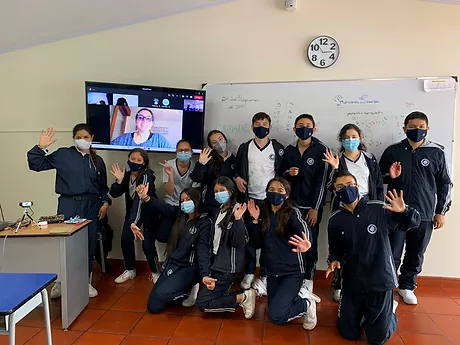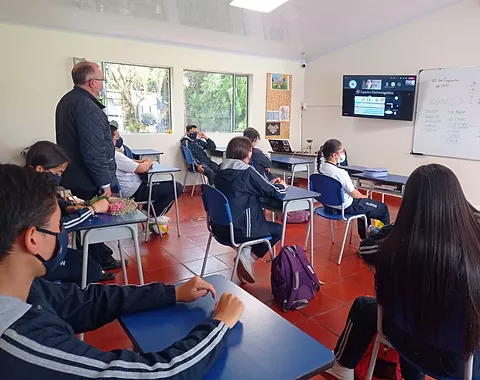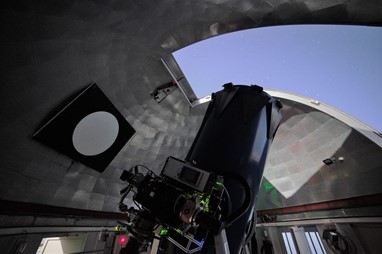Virtual Astronomy Mentoring to developing countries: Colombia
Wednesday, 23 March, 2022
The COVID-19 pandemic has completely changed the way we do our work. The need to use virtual resources has been shown to be an efficient way of interacting with people from anywhere in the world. In particular, they have allowed access to non-existent resources in some countries that would not be possible in a traditional way.
Astronomy in Colombia
Colombia is a country with a growing interest in astronomy. Various associations carry out multiple outreach activities. However, there is still an obvious gap for students at different levels, but especially at the university stage, to access certain resources that are not available in the country, such as access to professional astronomical observatories, which will help improve their training and its competitiveness when developing a scientific career in astronomy.
The Colombian Astronomy Student Network, RECA, is an association that seeks to create and strengthen links between astronomy students in Colombia. RECA seeks to create spaces that allow the exchange of ideas and significant experiences among its members to carry out various academic and social impact projects. Various activities are being carried out with this objective at different levels, from bringing astronomy to primary and secondary schools, promoting scientific vocations, to providing contact with professional astronomy for university students or recent graduates, including a mentoring program focused on guiding to students interested in developing a professional career in astronomy.
Use of virtual resources to bring astronomy to schools
To get young people to dedicate themselves professionally to astronomy, we must generate vocations. That is why it is essential to carry out outreach activities in astronomy from a very young age. In this framework, the researcher Nataly Ospina, from the Autonomous University of Madrid, in collaboration with the RECA education node, has given various talks in schools in Colombia. The objective of the activity has been for children to have contact with a professional astrophysicist, being able to learn first-hand what it is to be an astrophysicist, and especially to motivate girls to be future scientists, avoiding gender bias.
Virtual training in the use of professional telescopes
It is difficult for university students or recent graduates in Colombia to compete on equal terms with students from other countries with greater roots in astronomy. The latter have more resources, for example, access to professional telescopes, and possibilities to do small introductory research jobs, such as internships. In order to close this gap, RECA has developed an internship program that has allowed 13 students from different places in Colombia to have closer contact with research. Within the framework of this internship program, in a complementary manner and with funds from a Mobility Grant financed by Action COST CA18104, virtual training has been carried out in the use of professional telescopes, carrying out remote observations with telescopes installed at the Roque de Los Muchachos on the island of La Palma (Spain), coordinated by Ricardo Carrera, from the Osservatorio Astronomico di Padova (Italy).
Virtual training and mentoring in astrophysical research
In addition, the work of one of the students of this internship program focused on the use of data from the Gaia mission has been supervised. In particular, the proper motions and parallaxes obtained by Gaia have been used to investigate the structure and evolution of several old open clusters. The preliminary results of this work have already been presented at the workshop “Star Clusters: the Gaia revolution” within the framework of COST.
Final considerations
The change in mentality produced by the exceptional situation experienced in recent years has highlighted the potential of using virtual resources to enable access to resources that would not otherwise be possible. The work carried out has shown that it is possible to connect students anywhere with professional astronomers. Similarly, remote access to telescopes has provided the students involved with an observational experience that would not otherwise have been possible.
